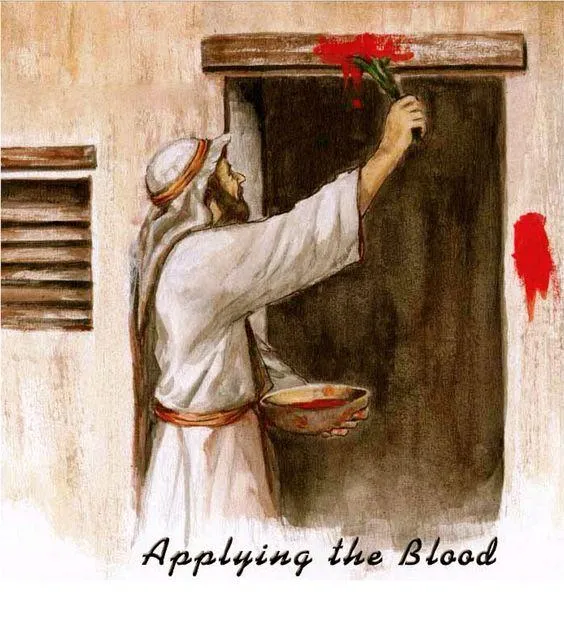Spirit-Led Childbirth
God's View of Childbirth
God’s View of Childbirth
From: Spirit-Led Childbirth • 6413 North Lunar Court • Fort Collins, Colorado 80525
God’s Word says that He cares for us. He loves us and cares for us with such fervor that everything that affects us, he is intimately concerned about. Childbirth is no exception—He created the male and female exactly as he wanted them, and saw that it was very good (Genesis 1:31). Man is created in God’s image, and, like God, is a creative being. Your child is a brand new spirit, never having existed before, and you, the parents, are entrusted with the stewardship of training the child in the way he should go (Proverbs 22:6). This process of training the child starts while he is yet in the womb, and requires that the parents be knowledgeable in the things of God concerning having children.
In the Beginning . . .
How did pregnancy and childbirth start out? Was it always the way it is today? Let’s find out from the Bible how God sees pregnancy and birth.
A common misconception today is that pregnancy is a sickness. This is manifestly evidenced by the traditions of obstetrical care in America today. When you get pregnant, you go to the doctor; when you go into labor, you go to the hospital; there, they put you in a wheelchair to take you up to your bed. Our culture implies that pregnancy is indeed a sickness or a disease. But what does the Creator think?
In the beginning, when God created Adam and Eve, He commanded them, “Be fruitful and multiply, and fill the earth.” (Genesis 1:28). But notice: Adam and Eve hadn’t sinned yet. There was no sickness anywhere until sin entered the earth. But God told them to get pregnant and have babies! This leaves us with only two alternatives: either God is the author of sickness, or pregnancy is not one. Surely the reader realizes from multitudes of Scriptures, that God hates sickness and disease, and indeed, He said, “I am the Lord that health thee” (Exodus 15:26). The only remaining conclusion is: pregnancy is not a sickness.
Okay, pregnancy itself is not a sickness, but giving birth is going to be painful. After all, remember that Genesis 3:16 says “in sorrow shall you bring forth children”? Doesn’t that say that you’re going to—eve supposed to—be in pain when you give birth? Isn’t that a lot of women? Isn’t that the “curse of Eve?”
Let’s look at the Hebrew language. Hebrew is the language in which the Old Testament was written, and from there it was translated into all the other languages. The Hebrew word for “sorrow,” as used in Genesis 3:16, is etsev. This word means to toil or work, but the word does not imply pain. Indeed, the same Hebrew word etsev was again translated ”sorrow” in the following verse, where God said to Adam, “in sorrow shall you eat of it [the ground] all the days of your life.” Does that mean that you have to be in pain every time you go to work to earn your bread? God forbid! The Bible no more requires pain during the birth of a child that it does when going to work.
But what about the “curse of Eve?” Isn’t pain in childbirth the punishment or curse that was placed on Eve for tempting Adam to sin, and giving him the forbidden fruit? This is a vain tradition of men, and not based on truth. Genesis 3:14, 17 says that the serpent and the ground were cursed, not Adam and Eve. The serpent (Satan) hates childbirth and seeks to corrupt it as much as possible. This is understandable enough when you realize what God told him: through the seed of the woman the Redeemer would come and would crush the serpent’s head (Genesis 3:15). Pregnancy and childbirth are the avenues through which the Messiah entered this world, and it is easy to see why the Enemy wants to pervert it into the most undesirable process he can.
Another biblical answer to the myth of the “curse of Eve” is this. Eve was not responsible for the Fall, Adam was. Adam was the head of the household and the priest of the family, and God held him responsible for the sin (I Corinthians 15:22; Romans 5:14). We’ve already seen that the only thing that God put on Adam was work (Genesis 3:17). It simply makes no sense that Eve’s “punishment” was greater than Adam’s when it was Adam’s sin.
While we’re talking here about whether the delivery of a baby is supposed to be painful, let us realize that children are a gift from the Lord (Genesis 33:5; Psalm 127:3-5; Psalm 128). Doesn’t it seem ridiculous that a gift would come in such a painful “wrapper?” That just simply runs cross-grain with the Bible says about God’s personality. He’s not like that. He doesn’t say, “Look! Here’s a gift for you!” and then mumble under His breath, “…and when they open it, I’ll beat them bloody.” It breaks His heart to have His children think of Him as a God that delights in hurting people. “If you then, being evil, know how to give good gifts unto your children, how much more shall your Father, Who is in heaven, give good things to them that ask Him?” Think about that: how much more!
What Does the Bible Teach About Childbirth?
“Every Scripture is God-breathed—given by His inspiration—and profitable for instruction, for reproof and conviction of sin, for correction of error and discipline in obedience, and for training in righteousness that is, in holy living, in conformity to God’s will and thought, purpose and action] (II Timothy 3:16, Amplified). In the area of childbirth, godly instruction is needed desperately, and there is much error that needs to be corrected, and there is much in childbirth that is crying out to be brought into conformity to God’s will and thought, purpose and action. The Bible has examples, commandments, and promises in it concerning that proper bringing to pass of the birth of a child.
Spirit Lead Child Birth
Let’s look at what the Word says about this blessed process.
In Exodus 1:15-16, Pharaoh is telling the Hebrew midwives, “When you do the office of a midwife to the Hebrew women, and see them upon the stools; if it be a son, you shall kill him: but if it be a daughter, you shall let her live.” The midwives, fearing God, did not kill all the male children, and so the Pharaoh calls them in again. “Why have you done this thing, and have saved the men children alive?” he demanded. They replied, “Because the Hebrew women are not as the Egyptian women; for they are lively, and are delivered before the midwives come in unto them.” The Hebrew women were “lively”—they had quick and easy births. They were all done before the midwives even arrived!
But wait a minute. Didn’t the Hebrew midwives just say that to get Pharaoh off their backs? You don’t think it was really true, do you? Yes, it must have been true, or at least extremely plausible, because Pharaoh was the supreme monarch of Egypt. If he had had the slightest inkling that they were lying, the midwives could have been executed at the snap of a finger. And the Pharaoh obviously had no qualms about killing people, for he had just ordered the murder of 50% of the Hebrew babies. Thus, it must have been common knowledge that the Hebrew women had babies quickly and easily.
One year after Moses led the Israelites out of Egypt, the Lord spoke to Moses and commanded him to take a census of Israel: “Take ye the sum of all the congregation of Israel, after their families, by the house of their fathers, with the number of their names, every male by their polls; from twenty years old and upward, all that are able to go forth to war in Israel.” (Numbers1:1-3). The result was 603,550 men (Numbers 1:45-46).
Based on this fact, let us note the implications:
These men were “twenty years old and upward, able to go forth to war.” In other words, of marriageable age.
It was a very important thing in those days to be married. For example, after Jacob had worked for seven years to marry Rachel, Laban gave him Leah. Why? Because the younger sister didn’t get married before the older sister, as that would imply no one wanted to marry the older one. Laban said to Jacob, “It must not be done so in our country, to give the younger before the firstborn.” And in Judges 11:37, when Jephthah’s daughter realized she was going to die, she and her friends spent two months bewailing her virginity, not her death! So we see that marriage was very important to Israelites at that time. Hence, it is a safe assumption that the 603,550 men counted in the census, had very nearly 603,550 wives.
Not only was it important to the Israelite's to be married, but it was just as important to have children. Look at how Hagar despised and mocked Sarai, because Sarai couldn’t get pregnant (Genesis 16:4, 21:9). And Genesis 30:1, talking of Rachel, says “And when Rachel saw that she bare Jacob no children, Rachel envied her sister; and said unto Jacob, ‘give me children, or else I die!’” The list could continue with Hannah, when her adversary, Peninnah, “provoked her sore, and made her fret” because Hannah was barren. And there is ample evidence from all over the Bible that large families were the norm: six, twelve, twenty children or more. Thus, we can conclude that since children were so important, it is reasonable (indeed, very conservative) to expect that ten percent of the 603,550 wives which left Egypt were pregnant at any one pointing time. Thus, there were always at least 60,000 pregnant Israelite women.
Here’s where all this arithmetic starts getting significant. Psalm 105:37, talking about how God had delivered the children of Israel from Egypt, says “…there was not one feeble person among their tribes.” Out of the approximately six million people, not one sick one! Now that’s amazing. But realize that this included all 60,000 pregnant women, and their (at least) 60,000 fetuses! Can you imagine the fame that would be given to a present-day doctor who had had 60,000 consecutive perfect births? No maternal or infant death, not even the slightest problems? This is indeed God’s idea of how babies should be born.
God, we’ve seen, is intimately involved and wants to be more involved with the process of having babies. Children are gifts from God, and from the very moment of conception, God’s creative handiwork is being affected in them. His precious Holy Spirit births your child’s spirit, and places in him the innate knowledge of God and His glory (Matthew 21:16). The Mind of Christ creates the mind, emotions, and will of your young one, placing into that child the personality, the characteristics, and the potential for the ministry He has chosen for him. His skillful hands delicately mold every molecule of DNA, giving the baby the physical characteristics which suit best the glorious plan God has in store for him. Psalm 139:13-16 (Amplified) describes it well: “For You did form my inward parts, You did knit me together in my mother’s womb … Wonderful are Your works, and that my inner self knows right well. My frame was not hidden from you, when I was being formed in secret and intricately and curiously wrought (as if embroidered with various colors) in the depths of the earth [a region of darkness and mystery]. Your eyes saw my unformed substance, and in your book, all the days of my life were written, before ever they took shape when as yet there was none of them.”
Does this mean that Jesus wants to be involved with everything concerned with having a baby? Yes. Even the timing of the birth is God’s timing. A baby comes forth “in the fullness of time.” We should be even as Rebekah, who bore Esau and Jacob “when the days to be delivered were fulfilled” (Genesis25:24). Or Elisabeth in Luke 1:57 when she was birthing John the Baptist: “Now Elisabeth’s full time came that she should be delivered and she brought forth a son” [emphasis added]. The obvious implication is that we should allow God to determine when our children come forth. Induction of labor merely for convenience is tantamount to telling God, “I’m sorry, God, but your methods are not satisfactory. We’ll improve them.” Induction could be aptly compared to helping a butterfly out of its cocoon; you’ll damage it or destroy it every time. We should just let it come out in its own time.
As an aside, keep in mind that when your doctor or midwife tells you your due date, this is based on the average length of gestation for millions of women. By the definition of “average,” half of all women will go “overdue.” Statistically, you have less than a fifty percent chance of being within a week either way of your due date. You have almost a ten percent chance of being two weeks “overdue.” (If you noticed that we keep putting the word “overdue” in quote marks, it is to communicate the fact that we’re dealing with the world’s definition of “due.”) But God is never late; He will bring forth your child when He wants to. Every woman is different in her optimum length of pregnancy; perfectly normal babies have been born to perfectly normal mothers who consistently carry their babies for ten and a half months! When your baby is actually due to be born, he will be; don’t let anyone talk you into letting them induce labor, just because you’re “overdue.”
When a person decides to induce or augment labor without consulting God, he exalts himself in that he is attempting to usurp one of God’s jobs. In Psalm 22:9, David is talking to the Lord, and says: “Thou are He Who took me out of the womb.” We are not to “help” God by stimulating labor unless He explicitly directs us to do so.
Even if we don’t think of unauthorized (by God’s authorization) labor induction as usurping of authority, it is just plain not a good idea. Labor induction or augmentation is usually done with a uterine stimulant, such as synthetic oxytocin. Given intravenously, synthetic oxytocin causes the uterine contractions to be harder and longer, and it allows less time between contractions for good blood flow to return to the uterus, baby, and perineum. This deprives the baby of oxygen, naturally to his detriment. But many people who don’t fear God don’t really consider the harm done to the baby; they are hardened against their young one.
This points out what Job 39:13b-17 says. Describing the mother ostrich, God says she “leaves her eggs in the earth, and warms them in the dust, and forgets that the foot may crush them, or that the wild beast may break them.” Why doesn’t she care? God goes on to say, “She is hardened against her young ones, as though they were not hers: her labor is in vain without fear, because God has deprived her of wisdom, neither has He imparted to her understanding.” Lack of wisdom and understanding, then, hardens your heart even against your own children. This is evidenced by so many women getting abortions, taking medications while pregnant with no real thought of the effects on the baby, and after the child has arrived, putting him in a day-care center when it’s not really necessary.
How can we combat this hardness of heart? Again, the Bible contains the answer. Proverbs 2:6-7 says “For the Lord gives wisdom; out of His mouth come knowledge and understanding.” Chapter 9, verse 10, confirms with “The fear of the Lord is the beginning of wisdom, and knowledge of the Holy One is understanding.” Seeking God in prayer and the study of His Word will soften your heart toward the little one growing in your womb. You will begin to see that your baby is, in truth, a blessing. Even if this pregnancy was an unexpected pregnancy, even if you can’t see how you can possibly feed another mouth, even if you’ve been told you can’t have any more children or else you’ll die, you’ll begin to see as you grow in the Lord that children are indeed a heritage from the Lord, they are a reward, and happy is the man who has his quiver full of them (Psalm 127:3-5). You’ll begin to see that the unexpectedness of the pregnancy was probably just because you didn’t ask God when or if you should get pregnant right now, or perhaps you weren’t listening (James 1:5). You’ll begin to see that God will supply all your needs, especially food for you and your children (Philippians 4:19; Matthew 6:31-33; Psalm 37:25). You’ll begin to see no matter what dire predictions of the doctor may have been, God is big enough to overcome them. He has promised, “blessings of the breast, and blessings of the womb” (Genesis 49:25).
“But I had a miscarriage last time I got pregnant. Do I dare try again?” Yes! One of God’s promises is that He will give you a fruitful womb. This not only covers the inability to get pregnant but the inability to carry a baby to term. Exodus 23:26: “There shall nothing cast their young [miscarry], nor be barren, in thy land: the number of thy days I will fulfill.” Notice: “… the number of thy days …” God will fulfill. God knows how many days there are in “the number of thy days,” and that may be different than the number of days for your friend next door. There is nothing better or worse about having more or less days in your “number of days;” just be satisfied that God is blessing you with a baby! Again, perfectly normal babies have been born to perfectly normal mothers who consistently carry their babies for ten and a half months.
We have said that when God gives a gift, it is a “good and perfect gift.” At this point, the child is perfectly formed. We know this because Jesus “doeth all things well” (Mark 7:37), and “every good gift and every perfect gift is from above, and cometh down from the Father of lights …” How come, then, are some babies born with birth defects and congenital problems? A very widespread misconception is that a baby “starts” when he is physically born. Actually, the baby is around none months old by that time. The time in his mother’s womb is when, out of his entire life, he is developing the fastest. It is also the time during which he is most vulnerable to attack from the devil. It is the parents’ responsibility at this time especially to be standing in strength in behalf of their child and protect him from all harm.
Wonderful. Just “protect your kid from harm,” that’s all. That’s all?!? How in heaven’s name are you supposed to do that? That’s like saying, “How do you avoid the dangers of undersea mining and still glean the riches of the seafloor? Just empty the ocean, that’s all.” No, it’s not as difficult as all that. It certainly would be if all we had to work with was our own human strength and wisdom. But that’s not all we have to work with. God has made power available to us, along with an instruction manual (the Bible) so we can learn how to use it.
Let’s look at some the instruction God has for us in childbirth
First, are we sure God wants us to have healthy babies? Can He heal a baby before it’s even born, or keep it healthy in the first place? In Exodus 23:25, God promises, “I will take sickness away from the midst of thee.” Guess who’s in your midst? Your unborn baby. Deuteronomy 28:4 says, “Blessed shall be the fruit of thy body.” What is the “fruit” of your body? Your children. Psalm 147:13 says, “He hath blessed thy children within thee.”
The parents have an awesome responsibility in the bearing and raising of children. The children are under the authority of the parents (Ephesians 6:1-3). The parents are responsible, then, for the protection of the child from conception until the child has been sufficiently trained to effectively wield, against the Enemy, the formidable power of the weapons of our warfare. This requires that the parents—the protectors—also know how to wield those weapons. Ephesians 6 describes the armor and weapons we deal with, and II Corinthians 10:4 tells of their power. These weapons are nothing but the use of the authority and power of the Almighty God Himself, which he has given to us (Luke 10:19).
It isn’t the place here to go into detail about how to become adept at using the power and authority of God,, but there are some areas that directly deal with childbirth.
1 Timothy 2:12-15 addresses the goodness of childbirth in several areas, every one of which is very important, not only during pregnancy and birth but in your entire Christian walk.
Verse 15 says that a woman “shall be saved in childbearing.” Saved in this verse comes from the Greek work σωζω (ѕōzō). Strong’s Exhaustive Concordance defines this word in its Greek dictionary as follows: “save, deliver, protect, heal, preserve, do well, be (or make) whole.” All these blessings of total deliverance are available. In childbirth, this includes:
- Complete health for the mother and the baby, prenatal time, labor, delivery, and postpartum. This includes all the things that Satan tries to bring fear through: Maternal high blood pressure, glucose in the urine, “I’ll have to get a C-section,” “the baby’s dead;” all the things that the father of lies tells us.
- No need for forceps, IVs, or episiotomy to help the baby out.
- No perineal tearing or even “skid marks,” the vaginal abrasions that sometimes occur during birth.
- No need for baby massage or resuscitation efforts to start the baby breathing. He already will be.
- No hemorrhaging after the placenta is delivered.
- No problems breastfeeding. No painfully engorged breast, no sore or cracked nipples, no breast infections, no drying up before weaning.
Let’s read the rest of the sentence in verse 15. It says, “She shall be saved in childbearing if they (they!) continue in faith, love, and holiness with sobriety.” That says “ … if they continue …” the husband is just as responsible for the success of the pregnancy, labor, birth, and puerperium as the wife. In fact, he has more responsibility. He is the head of the house (Ephesians 5:22-24), and he has power and authority over his wife’s body (I Corinthians 7:4). He must “dwell with [his wife] according to knowledge, giving honor unto the wife as the weaker vessel,” I Peter 3:7 says so that your prayers are not hindered. If you haven’t been living according to these commandments, your prayers will be hindered when she needs you the most. Husbands need to swell with their wives “according to knowledge” or “in an understanding way.” Men, you must learn the basics of pregnancy and childbirth in order to know what your wife needs. During pregnancy, her emotions can be erratic, and during labor, she will be so busy, she will forget to do various necessary things. She may also feel that asking for something would disturb her concentration excessively, so she goes without. Husbands, you must know what your wives need during these times!
And husbands, take an example from Jesus, the husband, in how he deals with the church, His bride. Ephesians 5:25 says, “Husbands, love your wives, even as Christ also loved the church, and gave himself for it.” He laid down His life for His bride; we husbands are supposed to do the same. Don’t be one of those husbands who won’t talk about the events taking place in his wife’s body because he “feels funny talking about those kinds of things.” Don’t be one of those who won’t help his wife with a perineal massage so she won’t tear during the delivery because he “feels funny touching her that way.” God commands us today down our lives; can we not even lay down our pride and embarrassment?
No, having babies is not just “women’s business,” the husband must realize and act upon the authority given to him as the head of the house, and the priest of the house. Husbands, again follow the example of Jesus, the Great Shepherd, and shepherd your own house, “gently leading those that are with young” (Isaiah 40:11).
Another of the Scriptures which address childbirth is John 16:21-22. It reads as follows:
21 A woman when she is in travail hath sorrow because her hour has come: but as soon as she is delivered of the child, she remembereth no more the anguish, for the joy that a man is born into the world.
22 And ye now, therefore, have sorrow: but I will see you again, and your hearts will rejoice, and your joy no man taketh from you.
In the same way, we’ve seen before, the Greek words’ meanings don’t come through the translation as they should. (For an excellent, in-depth discussion of the original meanings of childbirth-related words, read the book Natural Childbirth and the Christian Family1, Chapters 7 and 10.) The Greek words translated “in travail” come from the word tiktw (tiktō), which simply means “to bring forth a child.” The same word was used in reference to Jesus being born in Luke 2:7: “ … and she brought forth (tiktō) her first-born son, and wrapped him in swaddling clothes …”
The word “sorrow” is from the Greek word luph lupē). Like etsev, discussed previously, it refers only to an emotional state. Historians from this period tell us that birth took two to three hours, so we can be sure that “sorrow” is not talking about a long, drawn-out painful delivery.
And, finally, the work translate “anguish” is the Greek work θlipsiV (thlipsis). This word simply means “applying pressure, compressing together, or squeezing,” as in squeezing out the grapes, or in pushing someone out of his place.
Now, translating John 16:21 literally, let’s see how it reads:
21 A woman when she is giving birth (tiktō) hath sorrow (lupē), because her hour has come: but as soon as she is delivered of the child, she remembereth no more the pressures (thlipsis), for the joy that a man is born into the world.
There are many other references to childbirth in the Bible—both the Old Testament and the New—and nowhere does it imply that childbirth has to be long, painful, or exhausting. Our own culture has made it that way, but it was not that way from the beginning. As we can see, God’s concept of childbirth has been badly misrepresented by Bible translators whose own ideas have been heeded more than the inspired Word of God. You are encouraged—urged—to read Helen Wessel’s book Natural Childbirth and the Christian Family for a much more complete and detailed study of God’s Word in this area.
What Can We Do?
The time of pregnancy is a time of preparation of the mother and the father, not only for the mother’s sake but also for the child’s. There are many things that can be done that will be beneficial for both the mother and the baby. The sources of these things are the Bible, plain common sense, and physiological knowledge. Both the parents should be intimately aware of the things that are good to do, and do them; both the parents should be intimately aware of the things that are harmful to do, and avoid them.
One of the nuggets of knowledge which we can take from the pages of the Bible is in reference to the positions of childbirth. Exodus 1:16 says ´… When you do the office of a midwife to the Hebrew women and see them upon the stools …” The Hebrew women used birthing stools—a pair of short, flat stones—upon which they squatted. Squatting is probably the best possible position for a mother to be in while giving birth.
Many are the reasons:
― The squatting position requires that your trunk be upright. Being upright in itself helps:
- Gravity helps dilate and efface the cervix, shortening the labor.
- The baby’s weight is not pressing on the uterine artery, that artery which supplies the uterus, and therefore the baby, with blood and oxygen.
- The baby’s weight is not pressing on the inferior vena cava, the vein which returns blood from the mother’s lower body. Therefore, there is no discomfort from this, as there can be if you are lying down.
― The squatting position expands the birth canal, resulting in an easier, shorter birth. A pregnancy hormone, elastin, soften the cartilage in front of the pubic bone, and squatting can increase the cross-sectional area of the birth canal up to 30%.
Find out what God wants you to do, and obey Him even if He tells you something you didn’t want to hear. He knows what is best, and if you obey, you’ll see why He said what He said. For example, don’t just assume you are supposed to go to the doctor for your prenatal, or to a hospital for the delivery. Ask God, and then go if He tells you to, but don’t seek man’s help before God’s. Isaiah 30:1-3 talks about seeking help from Egypt (which is a type of the world and its “wisdom”):
- Woe to the rebellious children, saith the Lord, who take counsel, but not of me; who cover with a covering, but not of my Spirit, that they may add sin to sin;
- Who walk to go down into Egypt, and have not asked at my mouth; to strengthen themselves in the strength of Pharaoh, and to trust in the shadow of Egypt!
- Therefore shall the strength of Pharaoh be your shame, and the trust in the shadow of Egypt your confusion.
It is wise to ask God what to do for your pregnancy, labor, and delivery. If He tells you to go to a doctor or to deliver in a hospital, then do it. God told both Joseph, the son of Israel, and Joseph, the husband of Mary, to go to Egypt, and they were blessed while they were there! Why? Because they went in obedience to God, and not in obedience to their own will.
We’ve already seen that pregnancy is not a sickness. So why go to a doctor and hospital unless the Lord specifically directs you to do so? God told Adam and Eve to “be fruitful, and multiply.” But didn’t God know that there were no doctors around? Of course He did, but apparently, he didn’t consider that fact to be significant.
Jesus has commanded us to “heal the sick, and cleanse the lepers.” Those are real, honest-to-goodness diseases we are supposed to get rid of. But do we honestly think that we’ll have the faith to heal people who are really sick when we still run to the doctor and the hospital even when we’re not sick? “They that are well need not a physician, but they that are sick” (Luke 5:31).
There are many attitudes about childbirth in the world today that are completely opposed to what God thinks about it. When you hear one of these, check it against the Bible and see if that thought can stand up to the measuring stick of the Word. If not, rebuke the thought and get rid of it, “casting down imaginations, and every high thing that exalts itself against the knowledge of God, and bringing into captivity every thought to the obedience of Christ” (II Corinthians 10:5). If the thought doesn’t build faith in God, peace and rest in His love, and confidence in His desire for you to have a good birth—in short, if it does not glorify God—throw it out.
Many of the opinions the average woman-on-the-street holds and many of the “standard procedures” the medical profession endorses are not sinful in themselves, but the underlying attitude of “God couldn't quite handle it, so we’ll just help Him out…tsk, tsk …” shows plainly from whence they came. It’s just another subtle jab from the pit of hell to get us to think that God didn’t do a good enough job. How many of these “old wives’ tales” (I Timothy 4:7) have you heard?
- “You’ll probably be sick for a good part of your pregnancy. What happens to most women.”
- “You’ll need an episiotomy. 95% of women do. You can’t possibly stretch that much with tearing.”
- “We’d better give the baby a Vitamin K shot so he doesn’t get a brain hemorrhage.”
- “If you’re fair-skinned, you’ll have a painful breastfeeding experience. Your nipples are just too tender; your baby will be too harsh on them.”… and on and on. These are the thoughts that “exalt themselves against the knowledge of God.” And these are the thoughts that should be ruthlessly cast down.
Preparing the Baby
Remember, your baby is already nine months old when he is born. At birth, nine months have already elapsed in which the baby could have been receiving teaching, ministry, and prayers. But can an unborn child really understand the things of the Spirit of Grace? Yes, and we’ll see where the Bible indicates this.
We are to “declare His righteousness to a generation yet unborn” (Psalm 22:31, RSV). God said to Jeremiah, “Before I formed thee in the womb, I knew thee; and before thou camest forth out of the womb, I sanctified thee and I ordained thee a prophet to the nations.” Jeremiah was receiving his “marching orders” before he was born!
Babies yet unborn are sensitive to the Holy Spirit’s moving. “And it came to pass that when Elisabeth heard the greeting of Mary, the babe leaped in her womb, and Elisabeth was filled with the Holy Ghost.” Elisabeth, telling Mary what had happened, said, “ … as soon as the voice of thy greeting sounded in mine ears, the babe leaped in my womb for joy.” John the Baptist was thrilled to be in the presence of the Christ Child, the Anointed One, the Messiah. It seemed to make no difference to either John or Jesus that they were “only fetuses” at the time. Their spirits were receptive and alert to the moving of God.
Not only can babies be born again before they’re even born, but they can also be baptized in the Holy Spirit before they’re even born. John the Baptist was “filled with the Holy Spirit, even from his mother’s womb” (Luke 1:15).
Babies at a very young age know and magnify their Creator. Matthew 21:16: “Yea, have ye never read, ‘Out of the mouth of babes and sucklings thou hast perfected praise’?” This is a quote of Psalm 8:2, which brings out another aspect of the babies’ praise: “Out of the mouth of babes and sucklings hast thou ordained strength because of thine enemies, that thou mightest still the enemy and the avenger.” We would be more effective in our fight with the enemy if we would allow ourselves to learn some things from our little ones.
It appears, after seeing all these things, that God wants childbirth to be a blessed and wonderful thing. As we ask God for guidance for our entire pregnancy and childbirth experience (as we seek first the kingdom of God), He will indeed show us how to have babies in His way (all these things shall be added unto you). And we will see—as we've never seen before—that God is a gracious and loving Father.
1 Helen Wessel, Natural Childbirth and the Christian Family, Harper & Row, fourth revised edition, 1983.
Birth of the Manchild
Prenatal Flow Charts of the Manchild
BY: Renee W. Stein C.M., Fellowship of Christian Midwives
The Torah
Given on Mt. Sinai as were seven of the Feasts … Lev. 23
Birth of the Ama
A look at the Hebrew Calendar with a dissertation on eight Hebrew Feasts in relationship to the Birth of the Manchild.
The LORD GOD of Israel commanded the Hebrew people / Israelites to celebrate the seasons of the year through convocations; seven (7) feasts according to the lunar calendar. With the addition of Channukah as the eighth celebration, there is an interesting pattern that shapes up and forms the wonderful possibility that our Lord created a forecast as to the age of the Church as well as the development of a child, THE MANCHILD. This is in no way an attempt to cast in the concrete formula for either; only an attempt by the author to draw the similarities to your prayerful attention.
Beginning on the fourteenth day of the month of Spring-the first celebration in the Hebrew calendar is Passover. Passover to Channukah is exactly 280 days; from the first to the last festival. It takes the same number of days from the conception of a child to the fullness of its birth (give or take a few days). GOD punctuates that time frame with a feast on exactly the same days that are important to the development of the ovam in transit to the celebration of birth.
WE are believing this discovery, to be a Scriptural Blue Print of Life that God planted among His people long ago is only now being discovered and understood in relation to the birth cycle. Particularly in view of the torrid times when science has discovered DNA to be the genetic blueprint of individuality, The Prenatal Chart of the MANCHILD is the Blue Print of Life that comes to us as a pure gift. Abortion is on the rampage, high tech birth is prevalent and babies are born out of test tubes. Genetic manipulation is evident through invitro fertilization and mothers oftentimes, can not choose where or with whom they birth their infants. It is no mistake that a pattern of life is revealed, with such precision and timing, to HIS people.
The Hebrew keepers of time followed the Lunar Calendar based on the phases of the moon. Each month begins with a new moon reaching the full moon on the fourteenth day (14th) of a twenty-eight-day cycle in the month. The Egyptians worshipped the sun. They based their yearly calendar on the days of the month according to the rotation of the earth around the sun which takes a thirty to thirty-one-day cycle (30-31 day). But even while captive in Egypt, our Hebrew forefathers marked the years by the lunar cycle.
Over 5000 years ago, God gave the law and the order of the Feasts based on that same lunar calendar. Then, as well as now, this is as surely a sign of His love for His children. This calendar of events, seasons, feasts and festivals clearly is GOD's BLUEPRINT OF LIFE for his chosen generation (Lev. 23:4-5).
So, beginning a "Perfect" year at the Passover, we will show you what is more than coincidence…The tides, growing seasons, the menstrual and the birth cycle are determined by this lunar system. Let us look at the "Perfect" lunar cycle when viewing the menstrual cycle, conception to the birth of a child in view of the eight (8) feasts ordained by the LORD GOD in the early times of our Hebrew forefathers. Through the scriptures, by its very subtlety, this information is yet another praise for the LORD's eye for uniqueness in each one of HIS Children.
Again, this is by no means an attempt to say that all birth is going to follow this pattern routinely for there are always varying influences with each pregnancy that would augment this idea. This is merely an attempt to show the sovereignty of GOD, through His direction to a chosen Generation; revealing a pattern that can not be denied.
Likened to a seed that was planted long ago-we see today the fruit of God's labor in the Birth of a Manchild, created in God's own image and in His timing. The following Feasts are individually outlined to demonstrate the LORD's BLUEPRINT OF LIFE.
Source: www.Hebrew4Christians.com
Development of an Unborn Baby
We will see:
ANCIENT FEASTS OF ISRAEL, JESUS' FULFILLMENT OF FEASTS
BY HIS EARTHLY MINISTRY and UNBORN BABY'S DEVELOPMENT
PATTERNED AFTER FEASTS
1] PASSOVER. Passover occurred on the fourteenth day of the first month- the month of Abib or Nisan (Leviticus 23:5). Passover commemorated the salvation of Israelite children from death- through faith placed in the (Passover) lamb's blood- and the beginning of a new life in the Promised Land- as God used Moses to lead His people from bondage in Egypt.
NEW LIFE. God sent His Son, Jesus, to give all believers eternal life (John 3:16; etc.). Paul called Jesus our Passover Lamb (1 Corinthians 5:7). Any person who accepts by faith Jesus' blood sacrifice is given new life- an eternal life with Jesus in Heaven (John 3:1-21; etc.).
OVULATION. If one counts the month a woman becomes pregnant as the first month of pregnancy, ovulation occurs on the fourteenth day of the first month. At ovulation, a new life is readied, requiring only the next step- fertilization.
2] UNLEAVENED BREAD. The Feast of Unleavened Bread began on the day following Passover (Leviticus 23:6). This feast commemorated the haste required by the Israelites as they left Egypt (the bread did not have time to rise) and also symbolized the need to remove leaven from the homes (leaven, or yeast, was a metaphor for sin).
THE SEED. Jesus was buried in less than one day after His crucifixion. The Seed (Jesus) was buried- or planted- in the tomb. The seed of any plant must be buried in the soil before it can sprout and bear fruit. Our Seed, Jesus, was planted so that He could rise as the Firstfruits of the resurrection (1 Corinthians 15:20-23; etc.), with the proof and promise that those who believe in Him would also be resurrected from death (James 1:18; etc.). Jesus had no leaven (sin) in Him.
FERTILIZATION. Fertilization of the mother's egg (ovum) with the father's sperm- literally, planting of the father's seed- must occur within one day of ovulation, or that ovum disintegrates and pregnancy cannot occur that month.
3] FIRSTFRUITS. The Feast of Firstfruits began on Sunday following Passover (Leviticus 23:9-14), and could, therefore, occur on any date between two to six days after Passover. Celebration of Firstfruits involved waving a sheaf of the first harvested grain before God and was a statement by God's people of faith in Him to provide for all their needs as well as an offering of thanksgiving for all He had provided.
JESUS' RESURRECTION. Jesus, our Bread of Life (John 6:35), rose from death on the third day after His crucifixion (John 24:7; etc.). The planted Seed literally rose to become the Firstfruits of resurrection (1 Corinthians 15:20-23), as a sign of His Divinity and a promise that believers in Him would also be raised from death to eternal life.
IMPLANTATION. After fertilization, the fertilized ovum (egg) slowly moves through the fallopian tube into the cavity of the womb (uterus) for approximately two to six days, until it implants into the endometrium (the lining of the uterus) where it will be nourished and will develop until birth. At birth, the "fruit" of pregnancy comes forth- a baby with an eternal soul.
4] PENTECOST. The Festival of Weeks, Shavuot or Pentecost, occurred fifty days after Firstfruits (Leviticus 23:15-16; Deuteronomy 16:9-10). This festival was an offering of new grain to God in thanksgiving for the summer grain harvest. HARVEST. The Christian Church- the body of Jesus the Christ- began on the Day of Pentecost following Jesus' resurrection (John 14:16-20; Acts, Chapter 2; etc.). From this day forward, this Church would reap a great harvest of souls for God's Kingdom (Joel 2:28-29), with believers in Jesus being transformed into a new creation (2 Corinthians 5:17; etc.).
NEW CREATION (FETUS). As the implanted ovum continues to develop, he or she becomes recognizable with human-like features at approximately fifty days of gestation. From this time forward, the new creation becomes more human-like in appearance day after day until birth.
5] TRUMPETS. The Feast (Day) of Trumpets, Yom Teruah, occurred on the first day of the seventh* month, the month of Ethanim (or, Tishri) (Leviticus 23:23-25; Numbers 29:1-6). Trumpet blasts on this day acknowledged the presence of God in the land, announced the two major Holy Days to follow in the month and signaled the finality of God's plan for the year's harvest. (*The number seven is symbolic of the completion of a work of God.)
BELIEVERS' RAPTURE/ RESURRECTION. Jesus will return in the clouds to resurrect dead believers and rapture (translate, snatch up) living believers, that they may be with Him forever in Heaven (Acts 1:11; 1 Corinthians 15:51-54; 1 Thessalonians 4:16-17; etc.). This event will be accompanied by the sound of God's trumpet and a shouted command for believers to come up to the Lord. HEARING. The unborn baby's hearing is fully developed by the seventh month of gestation so that he or she can discriminate sounds, e.g, the sounds of God's trumpet and the command to come up to the Lord.
6] ATONEMENT. The Day of Atonement, Yom Kippur, occurred on the tenth day of the seventh month (Leviticus 23:26-32; Numbers 29:7-11). This solemn day for the atonement of the sins of the people through confession and repentance involved the shedding of blood from sacrificial animals. (NOTE: Two goats were sacrificed. Blood from the goat for the LORD was sprinkled on the mercy seat of the Ark of the Covenant, the goat for Azazel [Hebrew: az-aw-zale']- the scapegoat, the goat of departure- took up the sins of the people and was removed from the community [to take away the sins] and killed [to never bring the sins back]. Thus, the goat for Azazel symbolized God's promise to forgive and forget sin, after a sinner's confession and repentance.)
REDEMPTION. Surviving Zion (Israel) will be saved during the Tribulation, as Jews come to accept Jesus as their Messiah and Savior (Romans 11:26). Redemption from sin- for Jews and Gentiles alike- can occur only through personal acceptance of Jesus' blood sacrifice on the cross (Ephesians 1:7; Colossians 1:14; etc.). Like the symbolic goat for Azazel, Jesus through His crucifixion (blood sacrifice) became the way He could take our sins upon Himself and remove them from us, if we confess and repent of the sins (Isaiah, Chapter 53; 2 Corinthians 5:21; Colossians 2:13-15; 1 Peter 2:24; etc.).
BLOOD (HEMOGLOBIN A). Hemoglobin is the iron-containing protein in red blood cells which transports life-sustaining oxygen to the body's cells. During early pregnancy, the unborn baby requires special hemoglobin, fetal hemoglobin (hemoglobin F), to carry oxygen from the mother's placenta. After birth, the baby requires another hemoglobin, adult hemoglobin (hemoglobin A), to carry atmospheric oxygen from the lungs. The change from fetal (F) hemoglobin to adult (A) hemoglobin occurs during the seventh month of pregnancy. Thus, the change in the baby's blood hemoglobin prepares the baby to live outside of the womb in the world, just as Jesus' blood sacrifice prepares the believer to live outside of Earth in Heaven.
7] TABERNACLES. The Feast of Tabernacles (Ingathering, Booths, Sukkot) began on the fifteenth day of the seventh month (Leviticus 23:33-43; Deuteronomy 16:13-15). This feast, commemorating the time the Israelites lived in camp huts during their journey through the wilderness to the Promised Land, was a time of joy and celebration for all that God had given His people.
KINGDOM. Immediately after the Tribulation, Jesus will return to Earth and establish His rule during the Millennial Kingdom (Isaiah 9:7; Revelation 20:4-6; etc.). During this time, Jesus will physically tabernacle (dwell) with His people on Earth. In other words, the Spirit of God will physically live on Earth.
LUNGS. The unborn baby's lungs begin to develop sufficiently to breathe more efficiently after birth, during the seventh month of pregnancy. "Spirit" and "breath" are similar Biblical concepts: God blew His breath into Adam to bring him to life (Genesis 2:7). When the Holy Spirit descended upon believers at the birth of the Christian Church on the Day of Pentecost, one of the Spirit's manifestations was "the sound of a rushing wind" (Acts 2:2). The New Testament Greek word translated "wind" is pno-ay', which comes from the word pneh';-o, which means "to breathe hard."
8] CHANUKAH (HANUKKAH). The Feast of Dedication was not a Mosaic feast. This feast, prophesied in Daniel 8:9-14, commemorated the cleansing of the Temple after it was recaptured from the Seleucid Greeks (Antiochus IV, Epiphanes) by the Maccabeans in the Second Century B.C. This feast was celebrated after ten lunar cycles- or, 280 days (40 weeks)- into the Jewish year. Hanukkah today is represented by the nine-lamp Hanukkah menorah, which stands for victory and new life. ETERNITY. After the Millennial Kingdom, which will be ruled by Jesus, New Jerusalem (Heaven) will descend to Earth, and here will God the Father and Jesus live with believers forever (Revelation 21:1 – 22:5).
NOTE: Appreciate the significance of the Hanukkah miracle. There was only enough sanctified oil to light the Temple lamp for one day, but the oil miraculously lasted for eight days. Jesus is the Light of the world (John 8:12; etc.). One day to us is like one-thousand years to the Lord (Psalm 90:4; 2 Peter 3:8). Thus, eternity can be considered the "eighth day of creation," as follows: Days 1 through 4 represent the 4,000 years between Adam and Jesus' First Coming. Days 5 and 6 represent the 2,000 years between Jesus' First and Second Comings. Day 7 represents the Millennial Kingdom. Day 8 represents Eternity, which follows the Millennial Kingdom.










